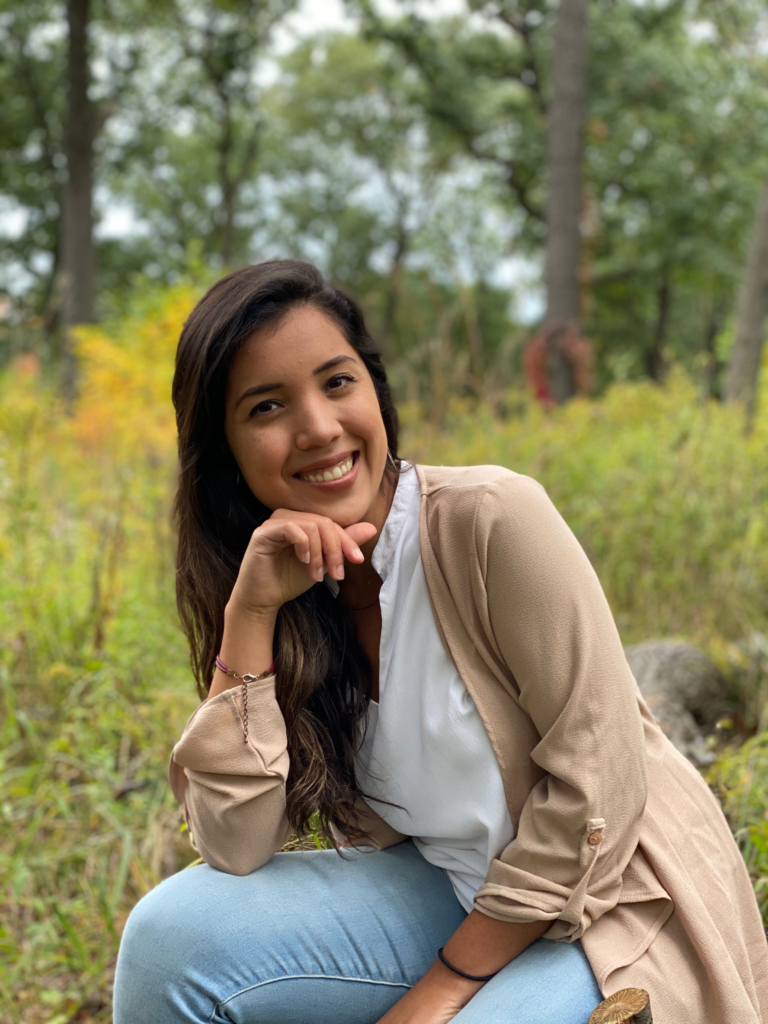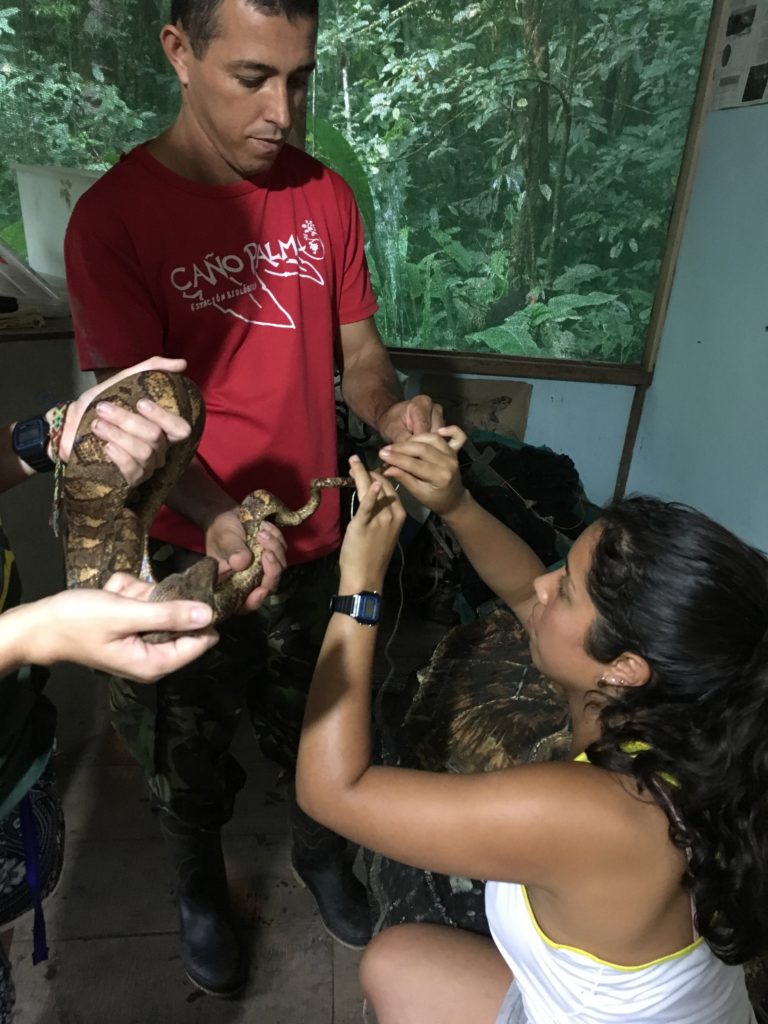
Melina Damian (BES ’17, MES ’19) is a committed environmentalist, animal lover and professional dancer. She holds two degrees from York, a bachelor’s and master’s of environmental studies from the Faculty of Environmental and Urban Change (formerly the Faculty of Environmental Studies) as well as a diploma in environmental education.
Melina has been an animal lover since she was young. When her father told her that plastic straws take hundreds of years to break down in the ocean, and in the process end up hurting a lot of marine creatures, especially sea turtles, she knew she wanted to do something to help.
“After finding photos online of turtles with straws stuck in their nostrils and impacted by plastic pollution, I started to take the issue very seriously,” says Melina. Both Melina and her father swore off using plastic straws and the issue spurred her interest in the environment and conservation.
Melina was born and raised in Caracas, Venezuela, where she lived until she completed high school, moving to Canada at 17 to further her English studies. It wasn’t until after Melina had arrived in Canada that she learned she could pursue a degree in environmental studies.
"After finding photos online of turtles with straws stuck in their nostrils and impacted by plastic pollution, I started to take the issue very seriously."
She credits her supervisors Dr. Sheila Colla and Dr. Gail Fraser for their support throughout her undergraduate and master’s degrees. During her undergraduate degree, Melina was keen to start working in her field, and despite being qualified for jobs, she struggled to find paid opportunities because of her international student status.
It was thanks to Professor Colla that Melina was able to land her first paid work opportunity, first as a field assistant for Dr. Colla’s lab, and soon after in an environmental organization working as a laboratory technician for Wildlife Preservation Canada.
Both of her supervisors also supported her during a difficult time when she was completing her graduate degree. “In 2019, Venezuela was going through a very difficult moment politically and economically, so to be far from family and friends – some of whom were in the midst of the crisis back home – it was really tough. I’d spend days worrying about their safety, and organizing events with other Venezuelan students to raise awareness about the situation. Both Dr. Colla and Dr. Fraser really supported me,” she recounts.
Melina’s master’s research brought her to Costa Rica for three months with The Canadian Organization for Tropical Education and Rainforest Conservation, where she studied the threat of plastic pollution to marine turtles in an important nesting ground for endangered marine turtles in northeast Costa Rica. “Ten years after learning about the impacts of discarded plastic straws on sea turtles, I was out in the field working with them and conducting research on the effects of plastic pollution on these vulnerable species,” says Melina. “After many years, all the dots connected.”

Upon returning to Toronto, she worked on a research study with Professor Fraser on the incorporation of anthropogenic debris (that is, garbage) into birds’ nests at Tommy Thompson park in Toronto, which was later published in the Journal of Great Lakes Research.
Now as a working professional in the environmental field, Melina continues to speak out about the harms of plastic pollution at conferences, in guest lectures, and on social media. She encourages others to learn more about how this issue affects the environment.
“Based on my research, the main thing I would recommend for people is to always be aware that, unfortunately, even if we dispose of our waste correctly and recycle properly there's always a chance of plastics ending up in the natural environment. They can be blown away or transported by rainfall so it's better to reduce their use, rather than think that recycling is going to completely eliminate plastic pollution.”
Melina also strives to emphasize that plastic pollution goes beyond protecting turtles or birds. The issue also raises human health concerns and it’s tied to environmental racism.
“Plastics are a by-product of the fossil fuel industry. The production of plastics results in harmful emissions at all stages of their lifecycle, which are not only contributing to climate change but are also disproportionally impacting underserved communities,” explains Melina. “I would encourage everyone to learn about the effects of plastic pollution on human health, and to spread the word about how important it is to mitigate this problem.”
In her role as communications coordinator at Ontario Nature, she has experienced the power of social media to help advance environmental education and create change. Her role allows her to connect with the environmental community in a unique way, and she has learned how to convert complicated research into more easily digestible terms – a skill she’s also been able to apply to the class she teaches at Centennial College.
“Environmental studies is an interdisciplinary field, and the job opportunities are very broad. You could focus on politics or advocacy, education, art, environmental law, conservation science... There are so many options to choose from. I think that's one of the things that drew me to pursue two degrees in this field,” says Melina.
Melina recalls that when she graduated, she didn't know exactly what she wanted to work in, but she affirms how happy she is in her current roles. “I love what I do. Working in an environmental charity that focuses on protecting biodiversity is very rewarding. Also, I never knew how much I would love teaching until I tried it,” she explains. “Sometimes you won’t discover the perfect job until after you're in it. I would encourage future graduates to always believe in themselves and pursue their dreams. There will always be barriers along the way, but there will also be many people ready to lend a hand. And the best part is that the possibilities to find a rewarding career in this field are endless.”
